grubs or maggots in my compost bin!!
i just noticed one of my compost bins has grubs or maggots in it today!
i dont compost any meats or dairy, but most of them seemed to be hanging around some egg shells i just recently added. they weren't throughout the whole bin fortunately.
is there something i should be doin before adding egg shells to my heap?
the rest of the heap has lots of horse manure, lots of oak leaves, banana peels, salad green leftovers, egg shells, corn husks and cobs, coffee grounds, an occational spoiled tomato, and a little dirt.
what can i do to keep these nasties out without upsetting my benificial bacteria? would using a pepper concentration help?
Comments (51)
Kelly_Slocum
18 years agoIt is almost certain that the rubs you're seeing are the larvae of the Black soldier fly, (Hermetia ilucens), which is highly beneficial, carries no disease and will aid the breakdown process in your bin. The link below will take you to a post with a lot more detail. Though the post was originally directed to a person living in Australia, this fly species is common here as well, and the information is as relevant to the US as it is to the Aussies.
http://forums.gardenweb.com/forums/load/verm/msg0401113220154.html
Kelly S
Related Professionals
Caldwell Landscape Contractors · East Haven Landscape Contractors · Ellicott City Landscape Contractors · Gallatin Landscape Contractors · Galt Landscape Contractors · Hendersonville Landscape Contractors · Lorain Landscape Contractors · Roseville Landscape Contractors · Westchester Landscape Contractors · Coronado Decks, Patios & Outdoor Enclosures · Boise Decks, Patios & Outdoor Enclosures · Fairfax Decks, Patios & Outdoor Enclosures · Fort Myers Decks, Patios & Outdoor Enclosures · Parker Decks, Patios & Outdoor Enclosures · Canyon Lake Stone, Pavers & ConcreteKimmsr
18 years agoIf those larva are black they could be the larva of the Black Soldier Fly but if they are whitish in color they are the larva of the common house fly.
Here is a link that might be useful: Black Soldier Fly
Kelly_Slocum
18 years agoI'm afraid your information is incorrect, kimmsr. BSF larvae are sometimes white, though most often light charcoal grey, but not black. The "black" in their name relates to the adults, not the larvae.
BSF larvae are easy to differentiate from housefly species, particularly because they are considerably larger than are housefly larvae (BSF larvae are about half an inch long and just a bit bigger around than a #2 pencil, while most housefly larvae in North America are about the size of a grain of rice or smaller).
Kelly S
Kelly_Slocum
18 years agoThat is, indeed, a BSF larva! Using color for identification can be tricky for many reasons, not the lease of which is because the larvae can be colored by the feedstock in which they live. I had some alarmingly-colored BSF in one system after it was fed with BEET residues!
Kelly S
riverminty
16 years agoYou likely know this already, but one must always rinse the inside of eggshells before putting them in the compost- and crunching them with your fingers, too. Personally, I've found that eggshells don't even compost, or at least not for a while. *Shrug*
buffburd
16 years agoSeriously, who rinses their egg shells before composting?
Crunch them up... yes, rinse them... no.
Oh, and I compost chicken bones too, they get progressively weaker/thinner each time I screen out a batch of new compost. Usually I'll snap them in half a couple times before they disappear.
Cheers,
Kylelorna-organic
16 years agoI always rinse egg shells before tossing them into the compost collection container I keep in the kitchen.
Lorna
kris_ziemer_gmail_com
15 years agoI just found a massive amount of the brown maggot shown in picture above in my compost bin! I am confused, are they ok for the bin or not?! If they are not how do I get rid of them? I noticed lots of talk of egg shell, I do throw egg shells in everyday, I do rinse it and crunch it up. Are they after the egg?
Kimmsr
15 years agoMaggots need a quite moist environment to hatch and grow in, an environment too moist for the bacteria that will be digesting your compost to work in, so the presence of maggots on your compost is an indication that material is too wet and needs to be dried out. Maggots feed on any dead, decaying organic matter, vegetative or meaty or fatty although they could be after the left over egg white, they would not be after the egg shells.
joepyeweed
15 years agoNot true kimmsr.
My REAL LIFE experience is quite the contrary. My piles tend to be on the dry side and what attracts the larvae is not the moisture, but rather the food in the pile. The adults found a great source for food their babies.
Larvae are not bad for the compost and in fact are considered beneficial compost organisms. Larvae poo makes good compost.
Kimmsr
15 years agoWhile there are a number of web sites that find no problem with maggots in compost most good sources of information will tell you they should not be there. This from Sandra Mason from the University of Illinois Extension will tell you that as have a number of others that ihave posted.
Here is a link that might be useful: No maggots in your compost
joepyeweed
15 years agoWhere in that article does it say that maggots should not be in the compost.
What it does say is that "piles that are not turned regularly or piles that have thinner areas along the edges can provide refuge and breeding areas for some insects, according to U of I entomologist Phil Nixon. These cooler areas of the pile can harbor stable flies, house flies, and green June beetles."
And then it goes on to describe each insect, what they feed on, but it never says the insects are bad for the compost.
The article infers that cool, unturned pile are more likely to harbor insects. I can agree with that. But I don't think a cool, unmanaged pile produces bad compost, and the article doesn't say that either.
There are more than one way to achieve compost. A hot continually turned pile relies on bacteria for decomposition. A cool, unturned pile relies heavily on insects (and crustaceans) for decomposition.
Every person has their own preference for how much work they are willing to put into their compost. Some people prefer to leave the work to the insects.
leannesloot
15 years agoI am attaching a link I found while in shock and panic one day seeing my compost swimming full of hungry noisy worms. the article is much the same story as mine. the BSF grub or maggot I was suprised to find as you will be that they are actualy a positive thing for the enviornment and not too well known yet. people even send away for them and actualy farm them. They may solve some of the world waste clean up troubles, are great fertilizer and can be fed to fish and poltry etc.. They are very interesting things and my compost heap( the plastic un-natural type)used to smell terrible and now it does not since these busy guys came to visit. Dont kill them just feed them and exsperiment with the benifits.link below
http://www.sfgate.com/cgi-bin/article.cgi?f=/c/a/2008/07/25/HOEIV3JNR.DTL
Kimmsr
15 years agoI think a large number of people are confusing the Black Soldier Fly, a largely useless adult fly that just lays the eggs that become maggots, with the Black Soldier Beetle, a beneficial insect, a predator of many insect pests. As the writer of the article states, quite clearly I think, the compost was really wet and smelled bad and that is the compost that the adult flies will lay the eggs that become the maggots in, a compost that is too wet to compost properly. The writer of that article clearly describes a poorly managed compost pile that would attract flies of many species including the common house fly.
mercygarden
15 years agoAfter reading this I am seriously turned off for the home composting stuff. I think I will just work on the worm bin from now on.
casey224
14 years agoI just turned my compost and found a bunch of small white maggots. These don't seem to be the larvae of the flies described; they're white, about a quarter of an inch long, and pretty skinny. They seemed to be congregating around an old melon rind and all ran down into the compost as fast as possible once they were exposed.
Even if they are good for the compost, I might try to get rid of them, as I'm composting in my backyard in Brooklyn and the bin is right by one of the only seating areas. I would prefer not to have a million flies swarming there in a few weeks.
Any suggestions?
marymd7
14 years agoWow, you guys spend a lot of time combing through your compost. Add more browns and don't worry about it.
lessermystery_yahoo_com
13 years agoI had no meat, no eggshells, yet my compost still produced housefly maggots? I thought they only hatched around rotting meat, etc?
beso-boru_nyc_rr_com
12 years agoI have them too. They turn into houseflies which is fine except that I'm not interested in farming houseflies in my house. The wet bin is definitely a problem. If I cover it to keep out the flies it gets wetter; if I leave it open to dry out they breed even more. Any solutions?
lazy_gardens
12 years agoLandey -
Add DRY materials, like straw, shredded paper or dry leaves and then mix it up thoroughly.jolj
12 years agomercygarden, worm bins are always good.
marymd7, browns or a lot of greens to cook the whole mess.janiceanddean_bellsouth_net
12 years agoI have an enclosed compost bin. I have never put egg shells or any protiens in the composter. I have what looks like large maggots. Are they benificial to my compost bin or should I put some kind od bug poison into the bin. This is my first enclosed compost bin.
Kimmsr
12 years agoFly maggots will hatch from eggs flies lay in any rotting organic matter, there does not need to be meat or fats or egg shells, just a pile of organic matter with enough moisture, too much for that organic matter to properly be digested by the bacteria you want to digest it. The presence of maggots in a compost pile indicates the material is too wet. I have noticed that when maggots are present in a compost pile it will have a slight putrid odor indicating it is near anaerobic digestion.
anthony_eckhardt_yahoo_com
12 years agoSo from what I gather, do what you want - but have a reason good enough in your head to do it? The best move for me based mostly on the amount of work, seems to be to add some brown since my bin is a little Raiders of the Lost Arc ish. I wonder if they'll turn purple if I feed them blueberry and beets?
ldybg1_hotmail_com
12 years agoOK, I live in an area that hasn't seen much rain at all this summer. I do not regularly water my compost bin for fear of bugs loving it. I do not put any animal products in the bin, outside of egg shells, which I break up thoroughly, but do not rinse.
I also turn my compost on a regular basis. It tends to be hot and on the dry side, except just after I put the food waste in because i have a lot of citrus/melon rinds that are leaky.
I still get the Soldier Fly larvae. I know that's what they are because I see one of the adults hanging around every once and a while. Besides being gross looking and creeping me out, they don't seem to be harmful. They break down the waste super fast.
I cover my bin with about an inch of brown every time i put fresh food waste in. Then I cover that with newspaper scraps. They still love it in there!
It seems I have done everything I'm supposed to do to NOT have them, but I still have them.
What is sounds like is that people just don't know much about these guys. They don't seem harmful right now and my compost looks great for how dry I keep it.
What I AM concerned about is when I go to add this compost to my veggie garden bed in the fall. How do I go about that if there's still all the larvae in the compost?
hobbiejm_earthlink_net
12 years agoThis past winter, I bought two large, rotating, composting bins from Sams. (Wild pigs started being attracted to my compost pile, then rooted up my yard.) I never had a problem with maggots in the pile, but now have them in the bins.
The bins seem to be more anerobic, as they retain the moisture, and have a "rotten egg" smell. Now the BSF maggots appeared. I rotate the bins daily, and have started adding more brown. (Easier to do, now, in drought stricken Texas.)
My question is related to seeds in the compost. In the old pile, it was essential to get the temperature up quite a bit to affect the killing of seeds and harmful bacteria. A thermometer indicated only temperatures around 118F in the bin, even in our 100+ heat. Some of the articles cited above in previous replies, imply that the BSF maggots kill the bacteria, but what about the seeds?
If I use the compost in my garden, am I going to have a prolific crop of cucumber volunteers or tomatillos coming up everywhere?
Thanks for your comments
Kimmsr
12 years agoKeep in mind that the Black Soldier Fly is largely a useless insect even though they can be a food source for some other insects, birds, or reptiles. The Adult BSF flies around, mates, and lays eggs for a total life span of about 30 days. The eggs those adults lay hatch and the maggots eat rotting organic matter not particularly the bacteria that also digest that organic matter, but the environment they (the maggots) need to live needs to be more moist than the aerobic bacteria like, so the presence of maggots may indicate your compost is in anaerobic digestion, a not good thing.
Seldom have I found compost with maggots that had that good rich earth smell good compost will have. Most often there is an off odor that is just not pleasant. I have also found that today there are a large number of people that do not know what good, rich earth smells like and they think that purid chemical smell many soils have is normal.RichFile
12 years agoI tend to agree with Kelly Slocum, in that extra critters in your compost bin aren't necessarily bad. I have a ton of BSF Larvae in my worm composter, and they're just devouring food like crazy. I also understand Kimmsr's posts. I think, in general, most people are disgusted by the appearance of maggots, larvae, and grubs in their composter and might be turned off from composting, so I think his/her suggestions will be useful for those folks as well as the folks that are noticing a nasty smell. Probably too moist.
RichFile
12 years agoMy worm composter is full of the BSF. Like Kelly and leannesloot posts, I find them to be doing a great job. The only downside, from what I can tell, is that they take over the composter and utimately your redworms may not make it. But who knows, it may not be a downside at all. They seem to be even faster than the redworms, and they're free!
Here is a link that might be useful: Wiki description
MelissaRight
11 years agoI would like an opinion if the brown grubs in this picture are indeed soldier fly larva. They seem to have invaded both of my compost tumblers and today when I was watering the garden they seemed to be leaping from cracks in the composters to get by the damp ground. I am nervous about them getting into my garden and eating it up! I live in the Phoenix, Arizona area and have a fall/winter garden. Thanks! Melissa
nc_crn
11 years agoSoldier flies are more beneficial than detrimental, imo. They love decay so you're likely to find them in compost bins. They're not fans of actively growing stuff and not common house pests.
Drewmusthebuffalo
10 years agoThe maggots are known to break down organic material in the pile so it can further decompose. And the flies inoculate the compost with beneficial bacteria from other sources.
This is one opinion which I personally would like to agree with. They are doing their job! In my case, I am not worried about disease from them. If a little fly kills me....
Anyway, I think they are useful in the way that worms are. They help to aerate the bin and allow oxegyn in. If it is way too wet, then anaerobic (non-resperating) bacteria grow and this is bad. However, by adding dried leaves and turning the compost and covering it with a mulch, you will create a home for worms who will also keep adding oxegyn through their tunnels, the maggots will deminish as the rotting food is broken down to humus so I would let them run their course where they are. If the pile is too wet, perhaps it is the location of the pile, or the containment, or just the contents themselves.
Why do we want to kill the maggots who are creating manure and innoculating our pile with bacteria? Are the bacteria non beneficial? Anaerobic? I dont see a reason to want them gone other than being grossed out which you can get over if you ask me... Unless you have an aversion which causes you to pee your pants in fear...Earth_Healer
10 years agoI too have maggots in my compost bin. I noticed the other day they permeated the whole bin (an old horse trough). And every time I'd go out to it a larger than normal fly would buzz my head and hang out near or on the trough. I assume this must be the momma fly. True to some peoples suggestions that the pile may be too wet I've been putting a lot of fresh produce, wetter than optimal hay, and fresh grass clippings.
I don't know maybe I'm lucky and they are breaking down my compost super quick. I'm concerned though about creating pests and that my pile may be in anaerobic digestion mode.
I will try to find some drier material and turn more often. The infestation was so bad I felt uneasy about turning the pile too much. I'll try some maple leaves and churn it and report back but it's been a very wet year for us so I suspect they'll be around for a bit.
hummersteve
10 years agoI found just one grub in my worm bin which I removed via smooch method. I keep forgetting that all fruit peeling should be washed first and Im thinking that is how this happened as my bins are inside and it was the dead of winter. I tend to make a lot of smoothies for myself and these peepling get saved in a container but I usually forget to wash these peelings [apples and bananas].
hummersteve
10 years agoIm not so sure. Any maggots Ive ever seen were smallish , but if your grubs/maggot is large in the beginning it could be black soldier fly larvae and from everything Ive read is not a bad thing to have in your worm bin.
scharliem
9 years agoStrange tiny maggots in my compost heap. Never bin food,only fruit or veg. Looked on the internet but could only see bigger maggots. Who can identify the ones on my photo? I have never seen them before. Over night they were there
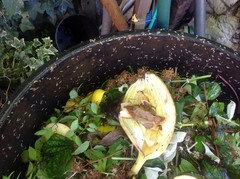
worm_composting_help
9 years agoHello,
I've read a lot of good comments here about the BSF maggots. They are indeed great to have in a compost heap as they are quick recyclers of organic waste. In a worm bin however they will cause a problem as they are more aggressive than the earthworms / compost worms and in almost all cases their presence will cause the worms to dig down deeper into the bedding of the worm farm away from the food sources.
The contents of the worm farm will then quickly become soggy and the worms will either flee or die.
Here is a link that might be useful: worm-composting-help.com
peachcobbler88
8 years agoI did very little research on composting before I started my pile. I'm using a plastic trash container, however, it is filled about a 1/4 of dirt. I started my compost on top of the dirt, is that okay or do I have to start over?
kimmq
8 years agoMaggots need a quite damp environment to live in and that should tell anyone with them in their compost pile that the material is too wet for proper composting.
Dirt, or more properly soil, is not necessary in the composting process, peachcobbler88, although it will not harm anything if included. About all it will do isw take up room other, better, materials could use.
kimmq is kimmsr
Pumpkin (zone 10A)
8 years agoI've found that the BSF maggots create the moisture via their effluent and that BSF maggots themselves appearing aren't a sign of too much moisture.
My compost is in a vented rotating barrel and pretty much always has BSF maggots, no matter what I do. I've just accepted them. I have noticed a few things--they're great at breaking stuff down and my compost rots much faster than before. They make effluent so make sure you're either filling the compost with dry stuff constantly or have a place for the fluid to drain. I keep a bucket under mine and dump the liquid on my fruit trees, they love it. The buggers can survive sitting in the tub in the sun in the summer in Arizona. As long as you turn the compost a few times a week it doesn't go anaerobic. I use the compost with the maggots in it just fine, it has never damaged my plants. The maggots have a distinct smell they create that kinda makes me gag but if the compost smells like vinegar or crazy putrid rot from a distance, you need to start draining the liquid and aerating. So, weird smell when in touching distance, yes. Terrible smell everyone notices, no. And, I've never noticed swarms of flies in my area. Pretty sure I'm helping support the local bird and lizard population with all the maggots.Pumpkin (zone 10A)
8 years agoOh--someone asked if seeds survive. Yes, they do. My compost gets steaming hot and I still get volunteers. However, I have noticed that the number of volunteers I get compared to the amount of seeds I dump into it is extremely minimal, like less than .1% so some of the seeds must be dying.
kimmq
8 years agoContrary to what some think that the heat of composting is what kills "weed" seeds current research indicates it is not.
Compost with a putrid smell, or a vinegary odor, is not being digested properly and that does indicate a compost mix that is too wet.
Compost should never have an odor that makes one gag. Compost should always have a pleasant odor of good rich earth. A compost pile that is turned "a few times a week" that is too wet wil still be anaerobic since the water displaces the air needed by the bacteria the should be digesting the material.
kimmq is kimmsr
mrcsnack
7 years agoI live in an apt. bldg. and recently, thousands of the brown grubs in the pic someone posted here were wriggling all over the garage floor. They seemed to be coming from the recycle bins. A lot got squished by the cars coming in and out, but most just covered the floor making it difficult to get out of your car and exit the garage. How do we prevent this from happening again, and in case it does, how do we get rid of them?
desiree4gw
5 years agolast modified: 5 years agoAnyone who is really familiar enough with the process of decomposition will grasp that smell variation (as well as other outcomes) will vary greatly depending on what's being decomposed, the mechanical and biochemical processes taking place. There clearly is no one specific proper way for things to decompose. Mother Nature has successfully tackled the process with many different materials in many different ways. Anyone here who thinks they know more than Mother Nature needs to decompose.



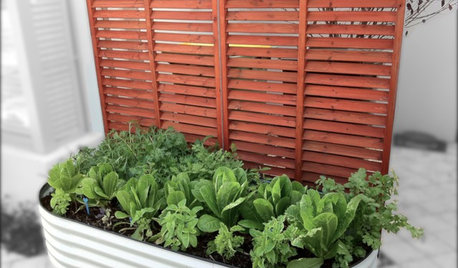

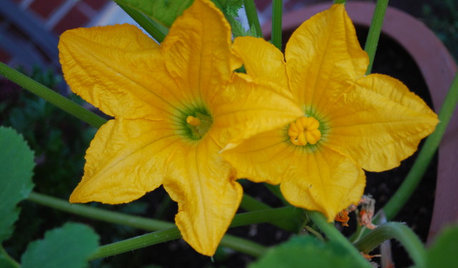

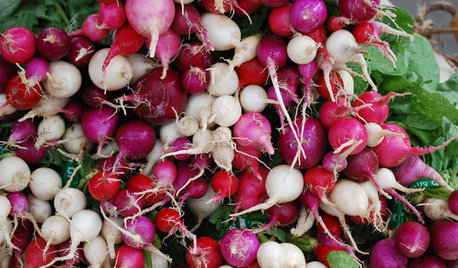






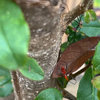

Tiffany, purpleinopp Z8b Opp, AL